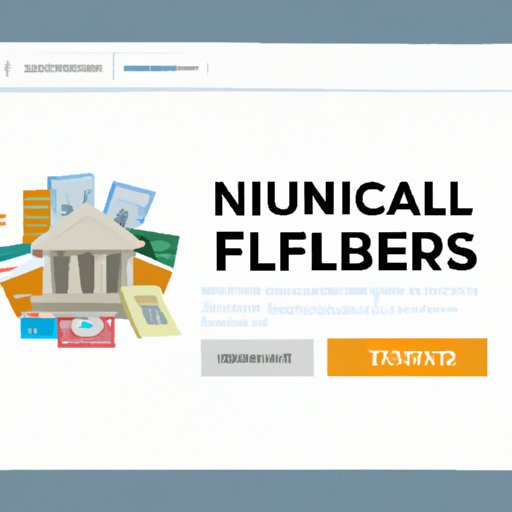Introduction
When it comes to managing finances, many people find themselves in difficult situations that can lead to an inability to pay their bills. Fortunately, there are a variety of resources available to those who need financial help with bills, ranging from government programs to nonprofit organizations. In this article, we’ll explore the different ways you can get financial help for bills and provide tips on how to access these resources.
Take Advantage of Government Programs
The first step to finding financial help for bills is to take advantage of any government programs for which you may be eligible. According to a report by the National Conference of State Legislatures, “Many states offer assistance programs to help low-income individuals and families with basic needs, such as food, housing, and medical care.” These programs can include cash assistance, food stamps, subsidized housing, and more. To apply for assistance, you will need to contact your state or local government offices to inquire about eligibility requirements and the application process.
Negotiate with Creditors
If you’re unable to pay your bills, you may be able to negotiate with your creditors to reduce your payments. According to a study by the Federal Reserve Bank of New York, “Creditors may be willing to negotiate lower payments if they believe that doing so will ultimately result in more money for them.” When negotiating, it’s important to remain polite and explain your situation in detail. You can also offer to set up a payment plan or suggest a lump-sum payment.
Cut Unnecessary Expenses
Another way to get financial help for bills is to cut unnecessary expenses from your budget. This can include things like eating out, buying new clothes, and streaming services. To identify areas where you can cut back, it’s helpful to create a budget and track your spending. Once you have identified areas where you can save money, you can use that money to pay off your bills.

Consider a Loan or Debt Consolidation
If you’re still having trouble paying your bills, you may want to consider taking out a loan or consolidating your debt. Taking out a loan can be a good option if you have a steady income and good credit. However, it’s important to understand the terms of the loan before signing any paperwork. If you have multiple debts, debt consolidation can be a good option as it can lower your interest rates and make repayment easier.

Seek Assistance from Nonprofit Organizations
Nonprofit organizations can also provide financial help for bills. There are a variety of nonprofits that offer assistance in the form of grants, loans, and other forms of aid. To find these organizations, you can search online or contact your local United Way office. It’s important to research each organization before applying for assistance to ensure they are legitimate.
Look for Local Resources
In addition to national organizations, there may be local resources available to help you with your bills. These can include churches, charities, and community organizations. To find local resources, you can ask friends and family for referrals or search online for local organizations. It’s also a good idea to contact your city or county government office to see if there are any programs available.
Utilize Online Resources
Finally, there are a variety of online resources available to help you find financial help for bills. These can include websites such as GoFundMe, Kiva, and GiveForward, which allow you to crowdfund donations from friends and family. You can also look into online lenders and debt relief companies, which may be able to help you manage your debt. Be sure to research any company before agreeing to their services.
Conclusion
Finding financial help for bills can be a difficult process, but there are a variety of resources available. Take advantage of government programs, negotiate with creditors, cut unnecessary expenses, consider a loan or debt consolidation, seek assistance from nonprofit organizations, look for local resources, and utilize online resources. With these tips, you’ll be able to find the help you need to manage your bills.
(Note: Is this article not meeting your expectations? Do you have knowledge or insights to share? Unlock new opportunities and expand your reach by joining our authors team. Click Registration to join us and share your expertise with our readers.)
